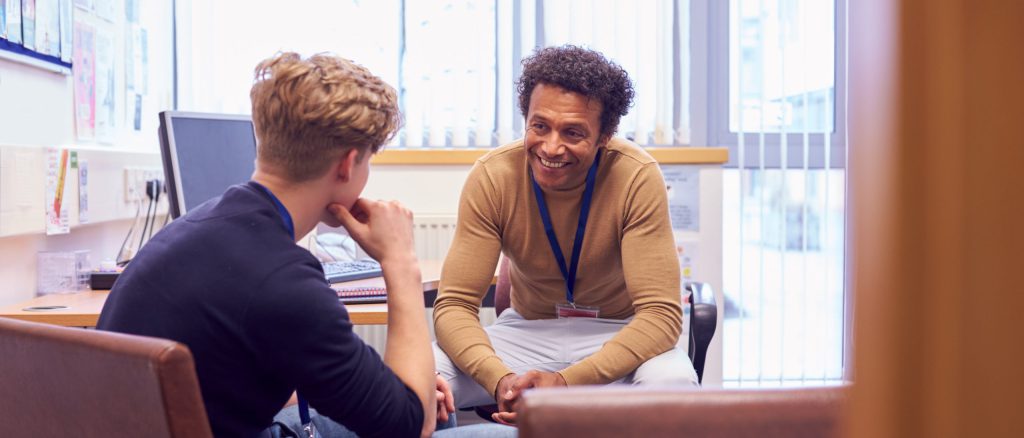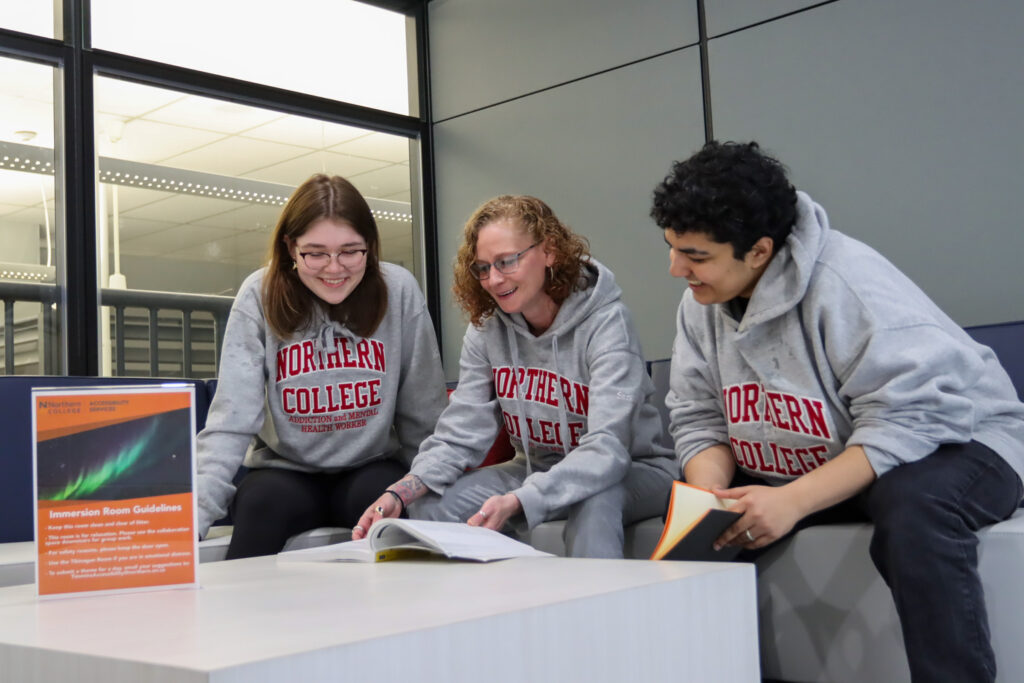Please remember to register or re-register with Accessibility Services each semester.
Accessibility Services
Accommodations
Our team helps to develop your Accommodation Plan to best support your studies, whether it’s in-class learning supports, accommodations for assignments, or options to take exams in the testing centre.
Transitionary Support
We offer services and resources to support a seamless transition from High School to College for students registered with Accessibility Services, including our CollegeBound course.
Meet Your Accessibility Services Team
Accessibility Services provides a continuum of support to meet student needs and promote growth.
Our diverse team has years of expertise in accessibility and accommodation and is ready to support you.
Learn more about the Accessibility Services team roles and how they can best assist you!
An Accessibility Advisor helps to ensure that the academic environment is accessible. This may include Academic Support and Advocacy, Accommodation Planning and Management, and Psycho-Educational Assessment Co-ordination. Barriers to learning are identified, and resources are offered to support learning. Students who learn differently or have physical challenges are encouraged to contact the advisors in Accessibility Services to discuss their program of study and any accommodations required.
Students who wish to register with Accessibility Services should meet with the Accessibility Advisor to discuss our services. Students who do not have the required disability documentation are encouraged to meet with the Accessibility Advisor to discuss options for obtaining appropriate documentation.
Learning Strategists support students in understanding how they learn best. Through collaboration between yourself and a Learning Strategist, you will uncover and discuss your learning style, strengths, and challenges. This will allow the Learning Strategist to share learning strategies and tools that enhance your efforts and make you a more efficient learner.
Learning Strategists (LS) help students become more effective learners in the college environment. Students registered with Accessibility Services can access the services of the LS through one-on-one sessions that are individualized to a student’s disability-related needs. Some possible topics include time management, study skills and semester planning.
Assistive Technologists (AT) help you explore technology that can support your disability-related needs in your academic studies. They provide you with training and support on this assistive technology.
Our Assistive Technologists (AT) help you explore technology that can support your disability-related needs in your academic studies. They provide you with training and support on this assistive technology.
Our Testing Centers coordinates accommodated tests and exams for students with disabilities registered with the Accessibility Services.


Getting Started & Registration
It is recommended that you contact Accessibility Services as soon as you accept your offer of admission to Northern College.
Contacting us early helps us to get started with the intake process and to ensure we have accommodations and support ready for when classes begin.
Accessibility Services Advisors Contacts
Haileybury Campus
AccessibilityHL@northern.on.ca
Kirkland Lake Campus
AccessibilityKL@northern.on.ca
Moosonee Campus
smallw@northern.on.ca
705-336-2913 ext. 5603
Timmins Campus
TimminsAccessibility@northern.on.ca
705-235-3211 ext. 2237
